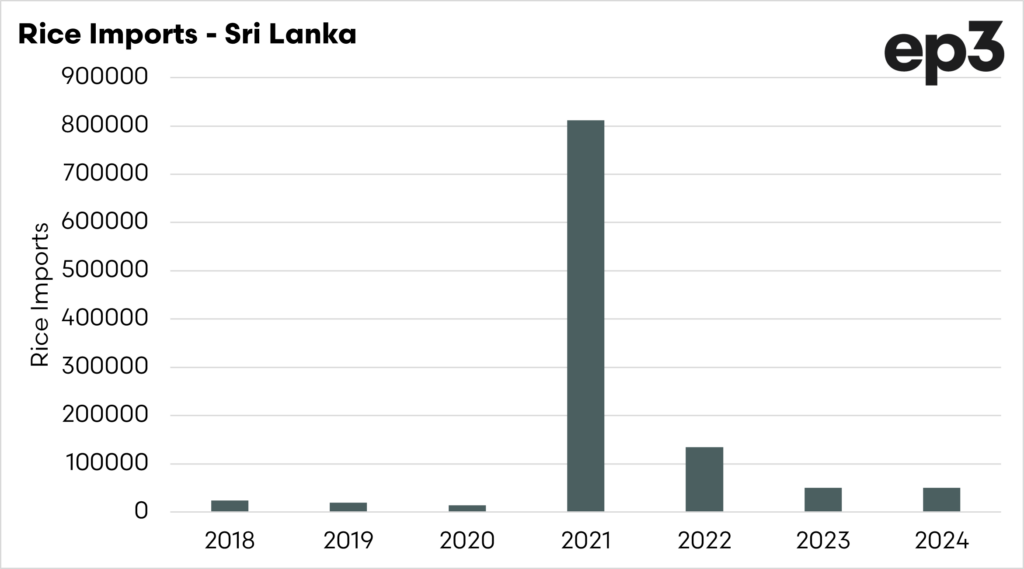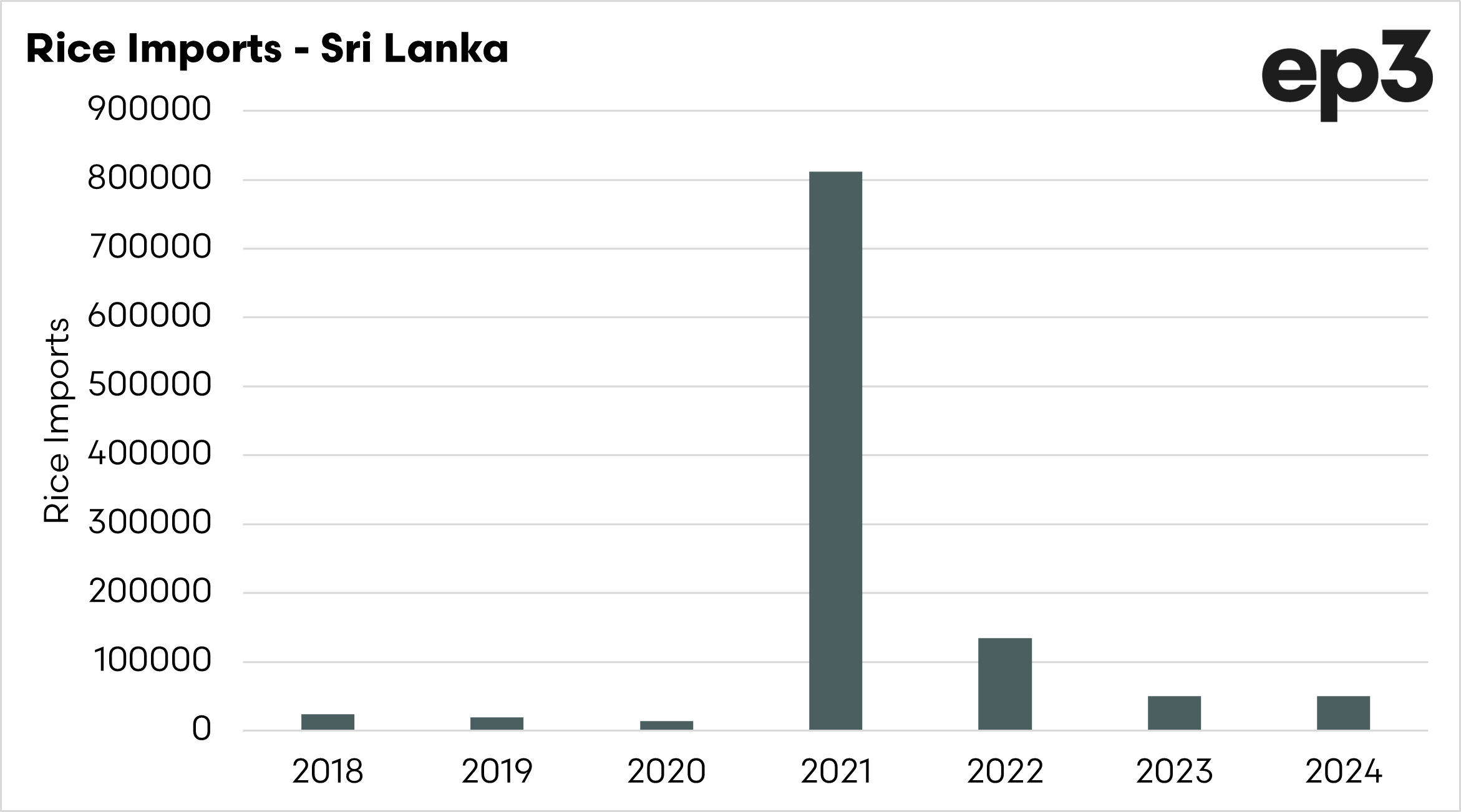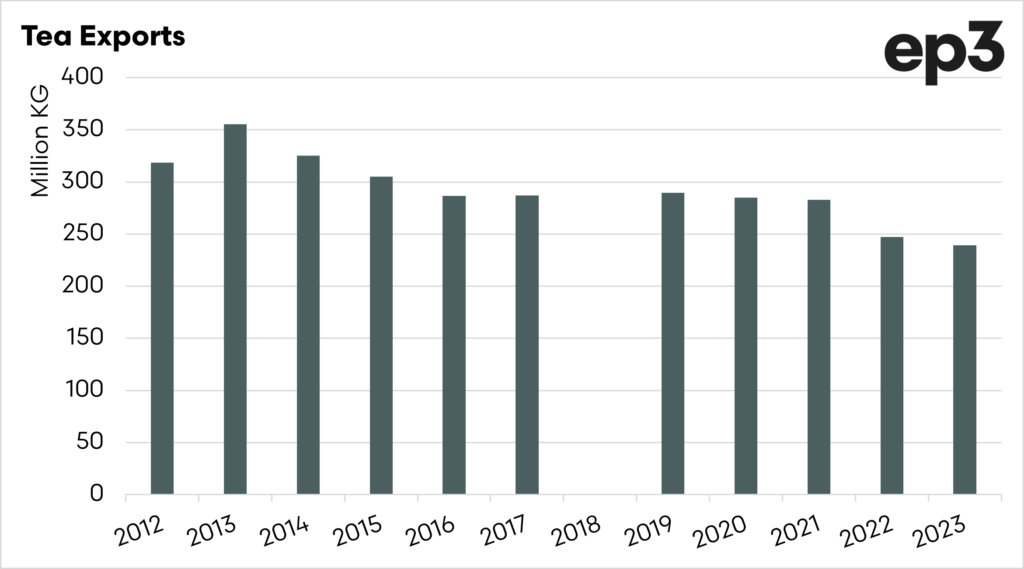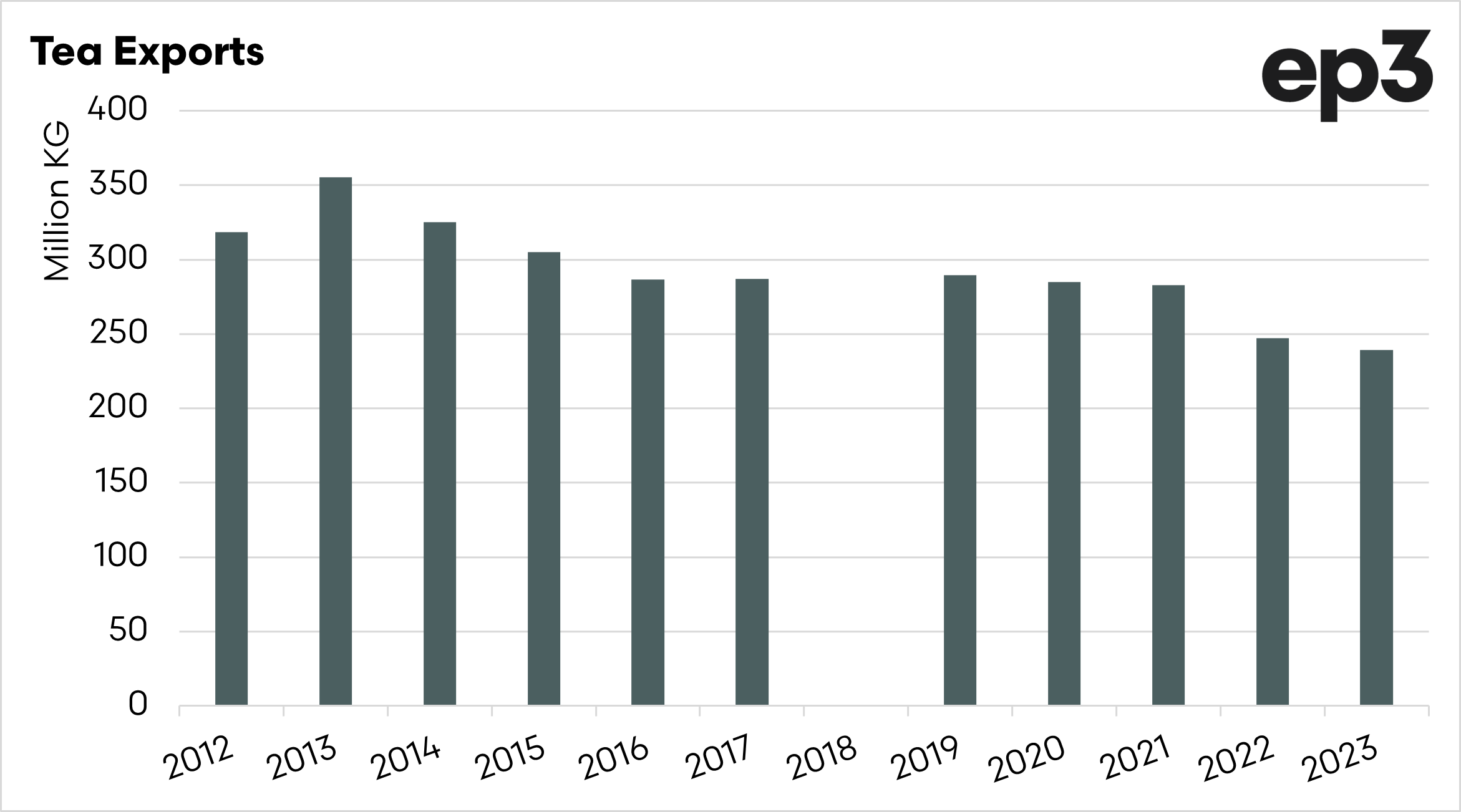Market Morsel: Ban paraquat? The butterfly effect.
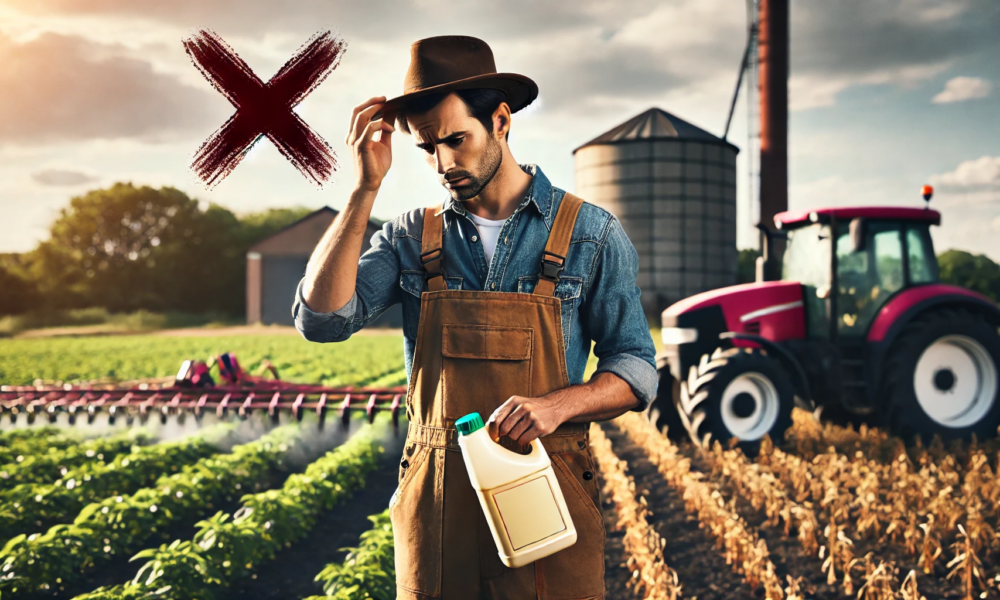
Market Morsel
There is a lot of concern at the moment in relation to paraquat and whether the ability to use this chemical will be constrained to the point where it is unusable in broadacre farming.
Those who forget the past are doomed to repeat it.
We can look at another country to gain insight into banning chemicals. The best case study is Sri Lanka. Sri Lanka banned all synthetic chemicals and fertilisers in April 2021 and was overturned in late 2021. The decision was so impactful that it lead to huge political upheaval.
Let’s look at rice, one of the most important crops in Sri Lanka. The first chart below shows the yields of rice from 2010 to the present. The ten-year average yield prior to the ban is shown. It is very clear that when synthetic agricultural chemicals and fertilisers were banned, the yield dropped significantly in the year and following year.
Rice is a staple food in Sri Lanka, and Sri Lanka is largely self-sufficient. In the second chart below, we can see that rice imports achieved record levels in the year and the following.
In addition to rice, tea is a major agricultural commodity. This brings significant export value to Sri Lanka and its producers. In the third chart below, we can see that the volume of tea exports dropped significantly in the years after the ban.
The Sri Lankan government thought forcing large-scale organic farming on their nation was a good idea. This is much more than the potential changes to paraquat usage in Australia, but it shows that decisions on agricultural inputs can have wide-ranging impacts.
Let’s learn from other nations to get an idea of what can go wrong.



